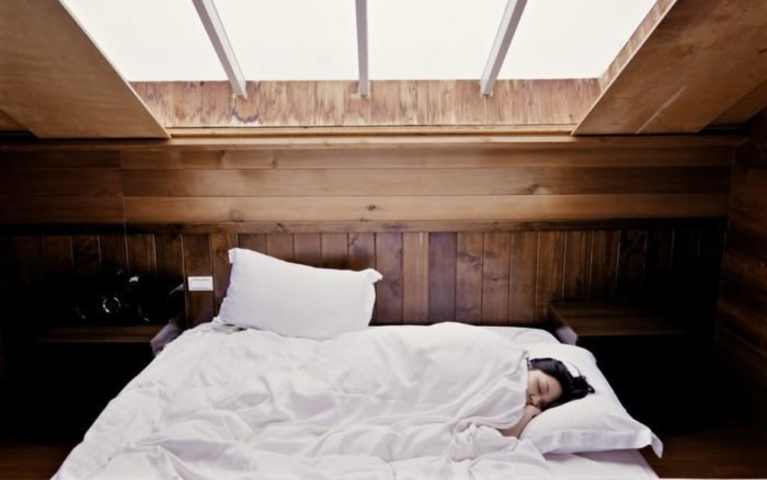People do all sorts of things to treat a cold: Some Russians like to make a drink out of an egg yolk and a teaspoon of honey or sugar, topped off with milk and butter, while one Chinese remedy involves burning the dried leaves of the plant Ai Ye, according to Healthline.
But the common illness the CDC says plagues millions each year may have a much simpler remedy. It's sleep.
“We found that those who slept 6 hours per night or fewer were roughly four times more likely to develop a cold when compared to those who slept more than 7 hours per night," says study author Aric Prather, an assistant professor in the Department of Psychiatry and the Weill Institute for Neurosciences at the University of California, San Francisco. "The study provides further evidence of the importance of sleep on our immune system," he says.
Not only can the lack of sleep influence your susceptibility to colds, but it can also decrease the release of valuable infection-fighting proteins called cytokines, and infection-fighting antibodies and cells, according to the Mayo Clinic.
For those who do catch a cold, the stuffy nose, watery eyes, and sneezing attacks can make sleeping difficult, if not impossible. Here are some things you can do to be more comfortable and get the rest you need:
Elevate your head
Let gravity work. Positioning your head higher than your body can make breathing easier and help your sinuses to drain, says Dr. Raj Dasgupta, a fellow of the American Academy of Sleep Medicine at the University of Southern California. A good way to do this is to make a wedge with a few pillows, he says. Our FlexFit™ adjustable base is another option.
Get steamy
Breathe in steam from hot soup or drinks and your dried-out nasal passages will thank you by surrendering some mucus. A hot shower or bath before bed can help, too, says Dasgupta.
Steer clear of alcohol
Although it can make you drowsy and maybe even drift off to sleep, alcohol can cause you to wake throughout the night, according to the Mayo Clinic. Booze can also make your sinuses swell, dehydrating you and interacting poorly with many cold or flu medicines, he says.
Drink plenty of fluids
Water, juice, warm water with lemon and honey are all soothing and can help loosen congestion and keep your throat and nasal passages from drying out, says the Mayo Clinic.
Add moisture
A humidifier or vaporizer can help loosen and break up mucous, which tends to be very thick, especially in the winter when the air is drier. The moist air can also help alleviate irritated tissues in your nose and throat and give you some pain relief as a result, say experts at Brown University, who also recommend inhaling the steam from your shower or a sink filled with hot water.
Don nasal strips
It's not the sexiest look, but these sticky strips, which run across the bridge of your nose, can help open up nasal passages, making breathing easier.
Like diet and exercise, quality sleep is essential for optimal wellbeing and performance. Because everyone's sleep needs are different, Sleep Number® smart beds sense your movements and automatically adjust firmness, comfort and support to keep you both sleeping comfortably. Find your Sleep Number® setting for your best possible night's sleep, and if you own a Sleep Number® bed, log in to your Sleep Number® Rewards account to see your exclusive offers, refer friends and more.
